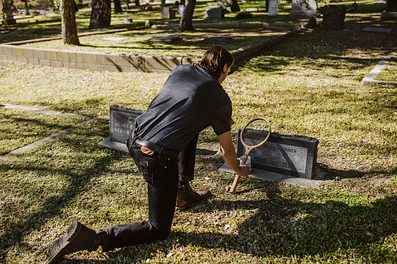A rock on a grave can have a variety of meanings, depending on the context in which it is placed and the culture in which it is found. In some cases, a rock on a grave may serve as a marker or sign of respect for the deceased. In other cases, it may have a more specific symbolic meaning, such as indicating that the person buried there was a member of a particular group or community.
One common interpretation of a rock on a grave is that it serves as a marker or sign of respect for the deceased. This interpretation is based on the idea that placing a rock on a grave is a way of showing that someone has visited the grave and is thinking about the person who is buried there. In this context, the rock serves as a physical manifestation of the visitor’s feelings and thoughts, and can provide a sense of connection and comfort for the person who placed it.

Another interpretation of a rock on a grave is that it has a specific symbolic meaning. For example, in some Jewish communities, it is traditional to place a small stone on the grave of a loved one as a sign of respect and mourning. This practice is based on the belief that the stone will help to keep the deceased person’s memory alive, and that it will provide a small measure of comfort to the person who placed it.

In other cultures, a rock on a grave may have a more specific symbolic meaning. For instance, in some Native American cultures, rocks are often used as grave markers because they are believed to have spiritual significance. In these cultures, the rock may represent the connection between the deceased person and the natural world, and may be seen as a symbol of the person’s journey into the afterlife.
